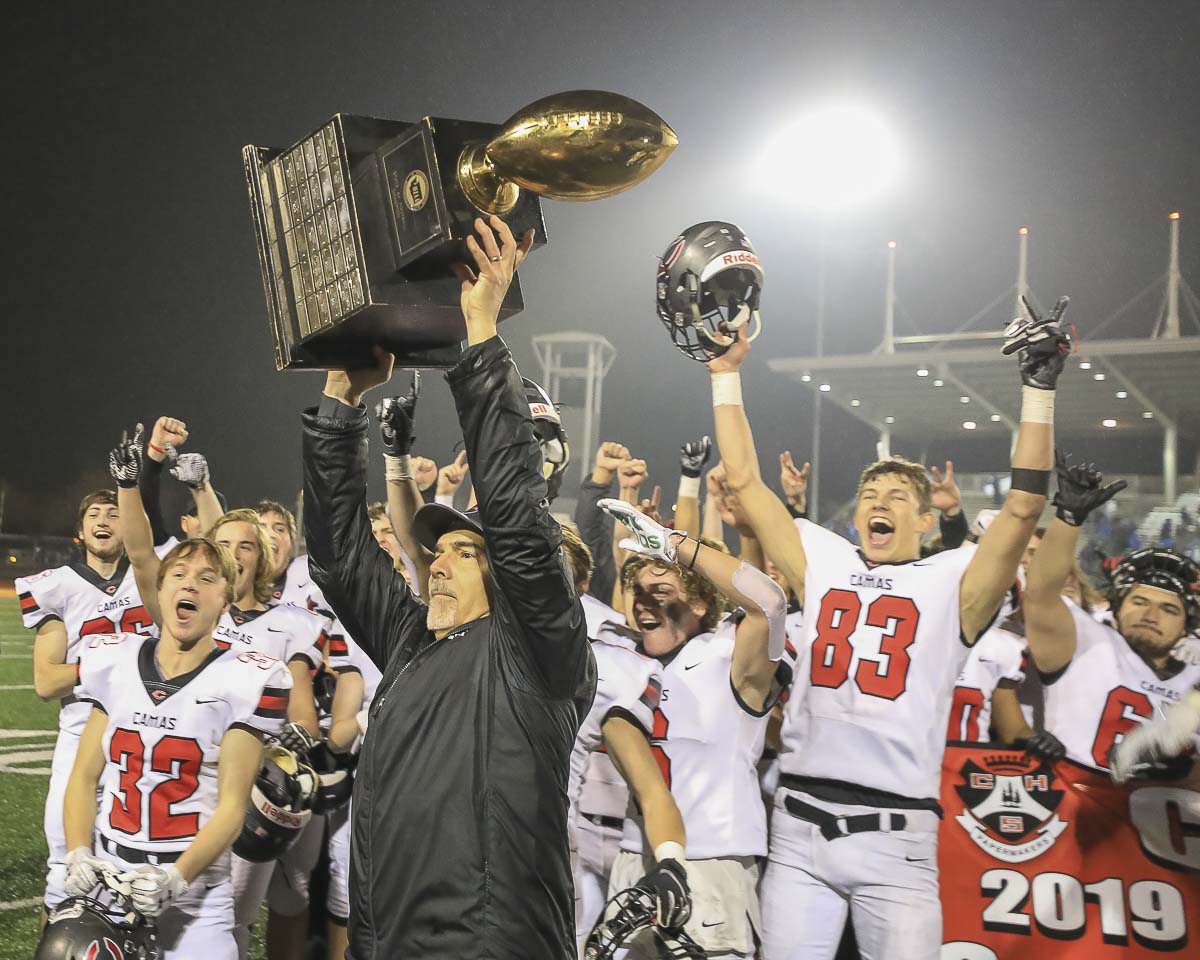Football scheduled to start in February; basketball will start in January
The Washington high school sports world has never seen a schedule quite like the one released by the WIAA on Tuesday night.
Football will start practicing in February. Basketball will start in January. And, the hope is, some sports will still be played in the fall.

The Washington Interscholastic Activities Association has come up with a tentative sports calendar to deal with the COVID-19 pandemic. The governing body of high school sports in the state has devised a four-season plan, rather than the traditional three-sport season.
“First and foremost, we absolutely want to provide an opportunity for our students,” Mick Hoffman, the executive director of the WIAA, said Tuesday night in an online press conference. “We understand how incredibly important education-based athletics and activities are. We have been working diligently to try to find a way.”
Cross country, slowpitch softball, boys golf, and boys tennis, along with the possibility of girls swimming, are still scheduled for the fall.
Basketball, bowling, boys swimming, gymnastics, and wrestling are slated to begin in January in Season 2.
Football will start practice in late February with volleyball and girls soccer in early March as part of Season 3.
Then the traditional spring sports will begin practice in Season 4 in late April.
The WIAA also noted that all of these start dates are tentative.
“Please understand it’s an incredibly fluid situation,” Hoffman said. “Where we’re at now could change tomorrow. Because this is happening so incredibly fast we want to make sure we’re giving information for schools to plan. But also make sure everybody understands that when you look at dates, those are definitely written in pencil.”
The WIAA’s executive board met Tuesday, finalizing the current plan.
Greg Whitmore, the president of the 13-person executive board, noted that this is the second time the WIAA has tried to manage athletics in a pandemic. The first came in 1918.
“We couldn’t find minutes back then on how we handled the pandemic,” he joked, “so we’re rewriting the playbook.”
“We know the decisions we make impact a lot of kids, a lot of coaches, a lot of districts. What we really focus on is making decisions on what we know,” Whitemore said. “Today was an example of that. “
The sports that are low risk can still be played in the fall, but Whitmore said those sports are in “great peril” as well.
He asked for flexibility to roll with whatever the state of Covid is as each season approaches.
If the low-risk fall sports cannot be played in the fall, they will likely move to Season 3 of the current format, Whitmore said. That would mean no sports until January.
“If there become changes beyond that, then we’re in scramble mode. We don’t have a contingency plan if this thing lasts well into January,” Whitmore said. “Our philosophy is going to remain the same: We’re going to try to get opportunities for kids.”
The tentative Season 1 goes into early November. Then there is nothing scheduled until January. Hoffman said that gives the WIAA the opportunity to delay Season 1 again if needed. Plus, the WIAA wanted to be cautious moving athletes back indoors for basketball practice, for example.
This means that all sports will have shortened seasons. Playoff scenarios will be determined for each sport as well. There is a possibility of only regional championships rather that one state champion in one or more sports.
Hoffman asked himself, what will postseason look like? And he answered: “At this point, we don’t know.”
Hoffman ended the press conference hoping to one day soon hear normal criticism from fans and the media.
“We can’t wait until you’re grilling us about a decision about the placement of a tournament or a rule change or something else because that means kids are back playing,” he said.




